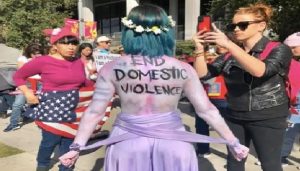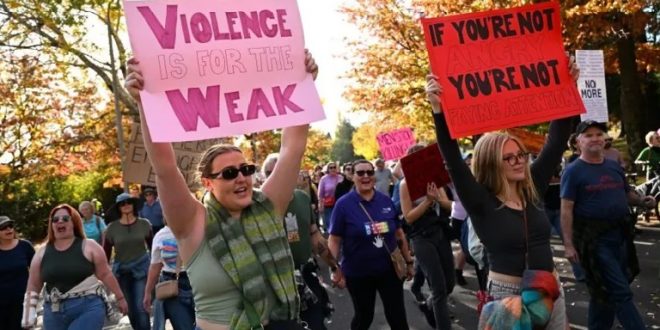13-05-2024
SYDNEY: “So, let’s talk about porn,” says Ethan West to the classroom of Australian teenagers. Most look slightly awkward. All are uncharacteristically quiet.
“Do any porn videos start off with a relationship where the actors talk about feelings or consent?” he continues. More silence.
 At Kellyville High School, north of Sydney, this is just one tricky conversation the 15-year-olds will be having today.
At Kellyville High School, north of Sydney, this is just one tricky conversation the 15-year-olds will be having today.
From sexist jokes and coercive control to sexual assault and brutal jealousy-fueled assaults, there’s not much off limits on the Love Bites program which national charity Napcan has delivered to thousands of students.
The “respectful relationship education” title sounds a little bland but it is being delivered against a backdrop of violence against women in this country that has been labelled a “national crisis”. At its core: trying to shift attitudes and behavior that has contributed to that culture.
The high-profile stabbing murders of six people at Sydney’s Bondi Junction shopping centre last month in which police said it seemed “obvious” that attacker Joel Cauchi targeted women brought the issue into sharper focus.
In the month since then, at least three Australian women have been murdered, allegedly by partners or exes.
So far this year, 28 women have been violently killed in Australia, according to campaign group Destroy the Joint which runs the Counting Dead Women project. At the same point last year it was 15.
In 2023, 64 women were killed by someone known to them. In the UK, a country with more than twice the population, the number was 100, according to the Counting Dead Women project in the UK.
Two weeks ago, tens of thousands of people around Australia took part in marches calling for gendered violence to be declared a national emergency.
 “For a young woman growing up in Australia it’s scary, knowing these things are happening,” says student Shriya, who listens intently at the back of the classroom as the group is given small cards with statements such as “equality”, “slut-shaming” and “sending unwanted nudes”.
“For a young woman growing up in Australia it’s scary, knowing these things are happening,” says student Shriya, who listens intently at the back of the classroom as the group is given small cards with statements such as “equality”, “slut-shaming” and “sending unwanted nudes”.
They’re asked to place the phrases along a line of masking tape on the floor labelled “respect and consent culture” at one end, and “violence and abuse culture” at the other. “Think of the line today as a metaphor for your gut feeling,” says Tara Gleig, a student support officer who is helping run Love Bites. “Your body will tell you when something’s not right. I want you to be able to know where that is.”
As a senior constable with New South Wales Police, Ethan West’s experience of attending domestic violence calls made him want to fix what he calls an “epidemic”.
“Every two minutes police are called to a domestic violence situation in Australia,” he says. And he thinks that for the younger generation, domestic violence is on a “new battlefield”.
“Everything’s online, there’s stalking, harassment and a lot of the problems with relationships are the sending of intimate images. Young people are sharing nude photos all the time. The relationship may end and they’re shared with others. That’s a domestic violence offence.”
For 16-year-old Kya, who took part in Love Bites a year ago, growing up in Australia leaves her “on edge” not just the threat of violence but the micro-aggressions of sexist jokes and a feeling she is less valued than the boys in her class and community.
“There are so many new advances in society, but this is still something that’s happening,” she says. “You have someone making a sexist comment [but] really it’s not that difficult to evolve from.” (BBC)
 Pressmediaofindia
Pressmediaofindia




